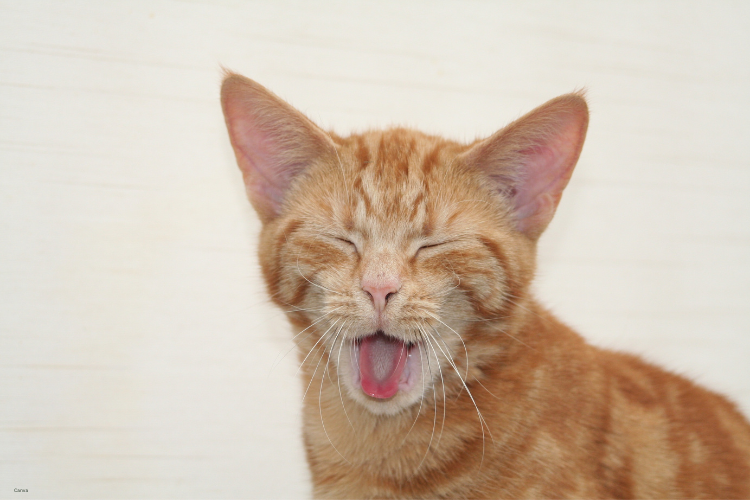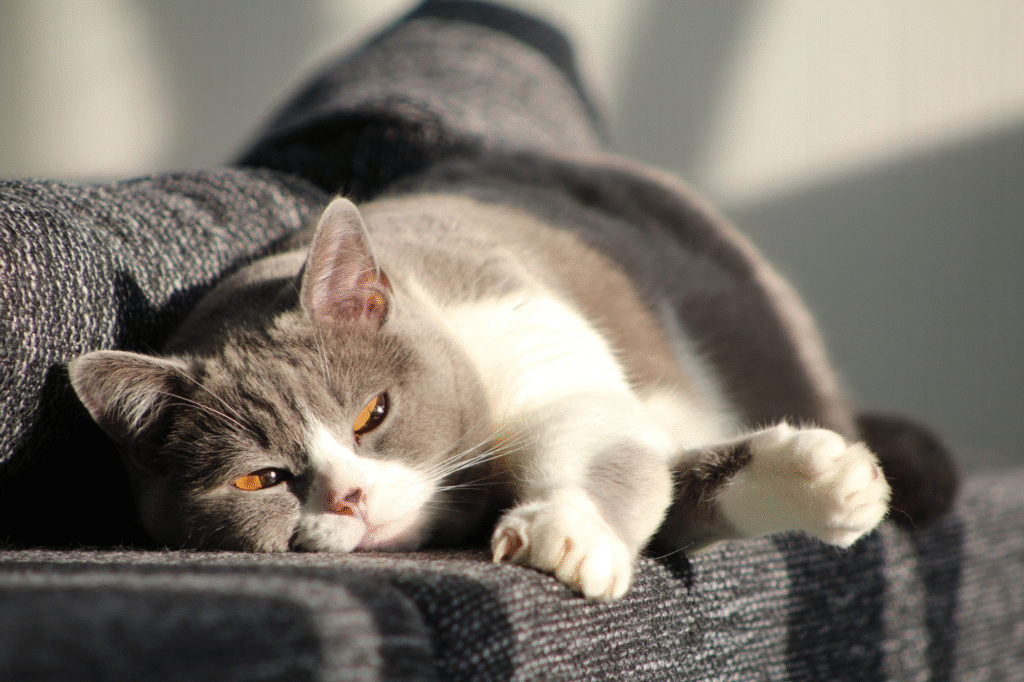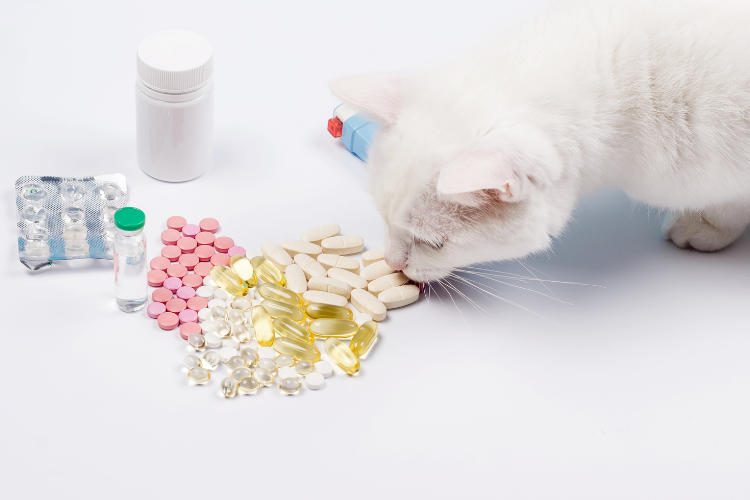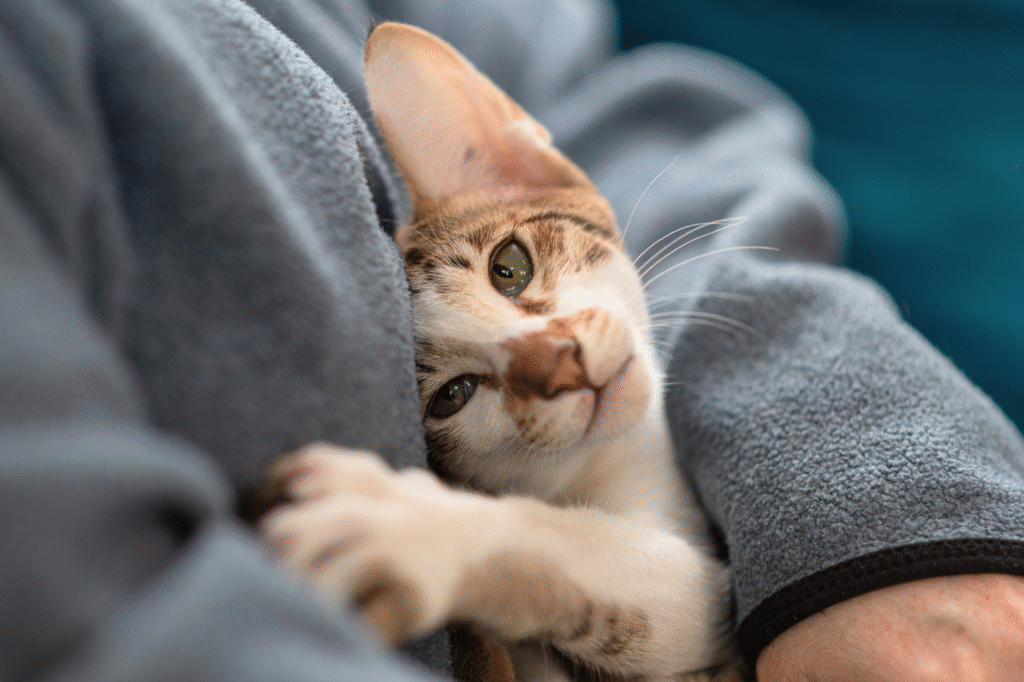Something funky in the litter box might be your first real clue that something deeper is going wrong.

Cat poop is never going to smell like roses but when it hits you like a full punch in the face instead of the usual quick whiff, something’s changed. The worst part is most of us do not even notice it at first. You scoop like usual, toss it, and go on with your day. Then it hits you again the next morning and it is stronger. Then you realize it has been days of this and your cat is still acting normal. Or maybe they are not. Maybe they are drinking more water or leaving the box mid-poop or just staring at the wall in that weird guilty way. One thing is certain. A sudden shift in smell is not random. It usually means your cat’s gut or body is going through something it wants you to miss.
1. Parasites are partying in your cat’s gut and making a mess of everything.

When things start smelling rotten on a whole new level, microscopic freeloaders are often to blame, according to Teena Welberg at PrettyLitter. Parasites like giardia or coccidia do not always show up in your cat’s behavior right away. Some cats act completely normal even while their gut is crawling with trouble. But their poop gives it away fast. The smell is sour and aggressive. It lingers way longer. And if you’re dealing with worms, you might even see evidence that is way too obvious to ignore.
This kind of infection does not fix itself. Most need a fecal test to even detect and a vet-prescribed medication to clear. Some of the most common infections are picked up from contaminated water, shared litter boxes, or just walking through the wrong patch of dirt and licking it off later. Once inside, the parasite changes the gut bacteria and that is when the stink really hits.
What makes this extra frustrating is that some cats build up mild resistance and show no outward signs. So if you live in a multi-cat home or take your cat outside, do not wait around if the smell suddenly goes off. A vet trip now saves a lot of mess later.
2. A diet swap might be backfiring in ways the label never warned you about.

New food means new reactions, and not all of them are cute. You might upgrade to a premium brand or switch to raw, thinking you are doing your cat a favor. And maybe you are. But their digestive system might not agree. Cats are creatures of habit, especially when it comes to food. Even a small shift in protein source or fiber content can throw everything off, as reported by Hilary Parker at WebMD.
One of the first signs that something is off balance is the smell of the poop. It might smell richer, fishier, or just downright wrong. That is usually the result of their body not fully breaking it down, which means more leftovers for bacteria to ferment. That equals stink.
If the switch is new, give it a couple of days. But if the smell keeps getting worse, or they start skipping meals or throwing up, it might be a sign that the food is not a good match. Not all fancy bags equal better guts.
3. Malabsorption turns your cat’s litter box into a warning system.

When nutrients are not being absorbed like they should be, it does not just affect energy levels or weight. It hits the litter box first. Poop from a cat dealing with malabsorption issues is often bulkier, looser, and way more offensive than usual, as stated by Jennifer Coates, DVM at PetMD. That smell is not just a one-off. It is your cat’s body waving a red flag.
Some cats have underlying issues with their pancreas or gut lining that make it hard to process fats, carbs, or proteins correctly. What you’re smelling is food that is passing through without being fully digested. It is sitting in the gut longer, fermenting, and attracting bad bacteria.
This is not a diet issue. It is a processing issue. And it tends to get worse with time. So if your cat’s poop starts smelling like something died twice and their coat starts looking dull or greasy, it is time to stop guessing and get bloodwork. They cannot tell you they feel off, but their digestion will.
4. That foul odor might be your cat’s pancreas quietly shutting down.

A healthy pancreas keeps digestion smooth. When it starts to fail, everything breaks down. One of the clearest signs of exocrine pancreatic insufficiency in cats is greasy, pale, foul-smelling stool, according to Dr. Mike Paul, DVM at the Pet Health Network. Not soft. Not wet. Just different. And gross. The smell often has this weird rancid-fat undertone that hangs around longer than usual.
This condition can develop slowly and fly under the radar. Your cat might be eating more than usual and still losing weight. Or maybe nothing seems wrong at all except for what is happening in the box. That is where the clues show up first.
Pancreatic enzyme tests are not part of regular checkups, so if this is the issue, it needs to be requested. Once diagnosed, treatment is usually simple but lifelong. Enzyme powder added to meals makes a huge difference. Catching it early means your cat stays comfortable, and your nose gets a serious break.
5. A bacterial takeover in the gut can turn normal poop into something evil.

All it takes is one shift in gut bacteria and everything gets thrown off. Maybe it started with stress, or a change in food, or an old antibiotic from months ago. Suddenly, the helpful bacteria are outnumbered by the bad guys, and the litter box starts telling the story loud and clear.
Poop from a cat with bacterial imbalance smells… hostile. Like sour milk mixed with something metallic. And it is not always loose or runny. Sometimes it looks totally normal but smells like it should not belong to a living thing.
This kind of disruption does not always need medication. Probiotics often help if the problem is mild and caught early. But if your cat is also lethargic or gassy or losing weight, this might be a sign of something deeper, like inflammatory bowel issues or infection. Either way, the smell is not random. It is bacteria in charge now.
6. Liver trouble can sneak up quietly and make the litter box impossible to ignore.

The liver filters toxins, helps digest food, and keeps everything running quietly in the background. But when it starts to struggle, it does not always show up in obvious ways. One of the first places it leaves a mark is the smell of waste. If your cat’s poop suddenly takes on a sharp chemical or metallic scent, that could be your early clue.
It often happens with no dramatic symptoms. Maybe a little more drinking or a slightly dull coat. Maybe they are slower to get up but still eating fine. Meanwhile, their body is quietly struggling to manage bile acids, and undigested fats start slipping into their stool. That is when the smell turns weird. Not just bad—off.
Blood tests will show elevated liver enzymes, but most people do not ask for that unless things get worse. If the smell shifts and your cat’s routine changes even a little, it is worth catching before it turns into something harder to manage.
7. Food allergies are not just about itching and they can ruin your cat’s digestion fast.

People expect food allergies in cats to look like sneezing or scratching. Sometimes it is that. But just as often, it hits the gut. And the most consistent symptom is a sudden change in how your cat’s poop smells. It gets sharper, heavier, and lingers longer than usual. If it starts happening after you opened a new bag or changed protein sources, that is your clue.
Even ingredients like chicken or beef—ones most people assume are safe—can be triggers for sensitive cats. Some allergies develop over time, so your cat might have eaten something for years before it starts causing problems. What follows is chronic gut irritation. And that always smells worse.
An elimination diet is the only real way to figure it out. It takes time and patience. But if your cat is pooping three times as much and it smells five times worse, the answer might be hiding in the ingredients list.
8. Stress can wreck your cat’s digestion in ways that show up overnight.

You might think your cat is unbothered but their digestive system will disagree. Cats internalize stress hard. New furniture, a change in your schedule, a vet visit from two weeks ago—it all gets stored in their nervous system and dumped out in the litter box.
Stress changes gut motility. It messes with absorption. It throws off bacterial balance. All of that combines into waste that smells… not just bad but unstable. One day it might be watery and acidic. The next day it might look solid but have a weird almost sour-burned smell to it.
This is where things get tricky. The smell is real but the cause is emotional. You might need to zoom out and look at your cat’s environment. Are they hiding more? Grooming less? Pacing at night? If the timeline matches the stink, this might be something you solve with calm, not medicine.
9. Some medications make your cat’s poop worse before it gets better.

Antibiotics, steroids, even some supplements can mess with a cat’s gut fast. You think you’re helping something else, and suddenly their poop is soft, sour, and unrecognizable. That’s not necessarily an allergic reaction—it is more about disruption. Meds alter the gut flora and sometimes even the way food gets broken down.
The most common culprit is antibiotics. They do not just kill bad bacteria. They take out the good ones too. Without those, digestion becomes unstable, and poop smells go full horror movie. The texture often changes with it. Softer, greasier, or mucus-lined stool is common.
If your cat is starting a new medication and things go off in the litter box within a few days, do not wait too long. Probiotics can help balance it out, but sometimes a dosage change or alternate drug is the smarter move. Never assume the smell is normal just because the meds came from a vet.
10. Kidney problems can cause waste to smell like chemicals or decay.

When the kidneys slow down, toxins start building up in the body—and some of them end up in your cat’s poop. It is not always the first symptom. But it is often one of the earliest ones if you are paying attention. The smell is different from digestive issues. It is more metallic or sour in a bitter, chemical way. You will notice it before your cat acts sick.
Sometimes the litter box starts smelling stronger even though your cat is drinking more. That is the kidneys trying and failing to flush properly. Older cats are most at risk but it can hit younger ones too, especially with certain breeds or past infections.
Routine bloodwork often catches it early. But if your cat’s poop has changed in a way that feels medically wrong, do not ignore it just because everything else seems fine. By the time there are other symptoms, the damage is harder to slow down.
